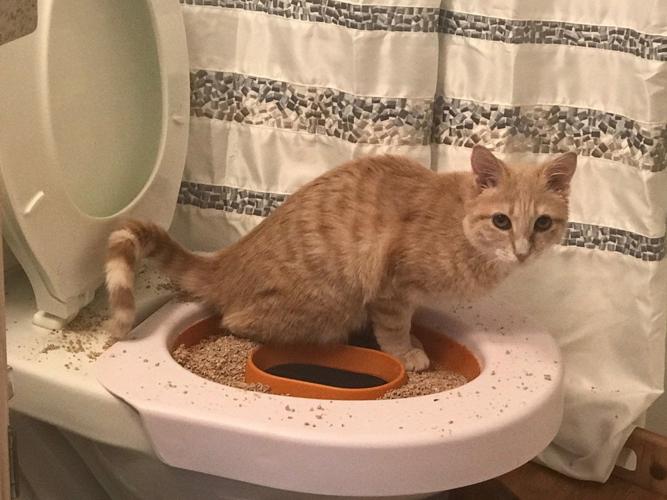Why You Mustn't Flush Cat Poop Down Your Toilet - Preserve Your Plumbing System
Why You Mustn't Flush Cat Poop Down Your Toilet - Preserve Your Plumbing System
Blog Article
Nearly everybody is bound to have their unique opinion with regards to How to Dispose of Cat Poop and Litter Without Plastic Bags.

Introduction
As cat owners, it's important to bear in mind just how we deal with our feline pals' waste. While it might seem convenient to flush feline poop down the toilet, this practice can have harmful consequences for both the environment and human wellness.
Alternatives to Flushing
The good news is, there are more secure and a lot more responsible ways to take care of pet cat poop. Think about the following choices:
1. Scoop and Dispose in Trash
The most usual technique of getting rid of cat poop is to scoop it right into a biodegradable bag and toss it in the garbage. Make sure to make use of a devoted clutter scoop and throw away the waste promptly.
2. Use Biodegradable Litter
Go with biodegradable feline clutter made from products such as corn or wheat. These litters are environmentally friendly and can be securely disposed of in the trash.
3. Bury in the Yard
If you have a yard, consider hiding cat waste in an assigned location far from vegetable gardens and water resources. Make sure to dig deep enough to stop contamination of groundwater.
4. Install a Pet Waste Disposal System
Invest in an animal garbage disposal system specifically created for cat waste. These systems use enzymes to break down the waste, decreasing smell and ecological impact.
Wellness Risks
In addition to environmental concerns, flushing cat waste can additionally position health and wellness threats to human beings. Feline feces may contain Toxoplasma gondii, a parasite that can create toxoplasmosis-- a possibly severe disease, particularly for pregnant females and individuals with damaged body immune systems.
Environmental Impact
Flushing cat poop presents damaging virus and parasites into the water system, posing a considerable danger to marine ecosystems. These contaminants can negatively affect aquatic life and concession water high quality.
Final thought
Accountable family pet possession prolongs beyond supplying food and shelter-- it likewise involves proper waste management. By avoiding purging feline poop down the bathroom and choosing alternative disposal approaches, we can lessen our environmental impact and secure human health and wellness.
Why Can’t I Flush Cat Poop?
It Spreads a Parasite
Cats are frequently infected with a parasite called toxoplasma gondii. The parasite causes an infection called toxoplasmosis. It is usually harmless to cats. The parasite only uses cat poop as a host for its eggs. Otherwise, the cat’s immune system usually keeps the infection at low enough levels to maintain its own health. But it does not stop the develop of eggs. These eggs are tiny and surprisingly tough. They may survive for a year before they begin to grow. But that’s the problem.
Our wastewater system is not designed to deal with toxoplasmosis eggs. Instead, most eggs will flush from your toilet into sewers and wastewater management plants. After the sewage is treated for many other harmful things in it, it is typically released into local rivers, lakes, or oceans. Here, the toxoplasmosis eggs can find new hosts, including starfish, crabs, otters, and many other wildlife. For many, this is a significant risk to their health. Toxoplasmosis can also end up infecting water sources that are important for agriculture, which means our deer, pigs, and sheep can get infected too.
Is There Risk to Humans?
There can be a risk to human life from flushing cat poop down the toilet. If you do so, the parasites from your cat’s poop can end up in shellfish, game animals, or livestock. If this meat is then served raw or undercooked, the people who eat it can get sick.
In fact, according to the CDC, 40 million people in the United States are infected with toxoplasma gondii. They get it from exposure to infected seafood, or from some kind of cat poop contamination, like drinking from a stream that is contaminated or touching anything that has come into contact with cat poop. That includes just cleaning a cat litter box.
Most people who get infected with these parasites will not develop any symptoms. However, for pregnant women or for those with compromised immune systems, the parasite can cause severe health problems.
How to Handle Cat Poop
The best way to handle cat poop is actually to clean the box more often. The eggs that the parasite sheds will not become active until one to five days after the cat poops. That means that if you clean daily, you’re much less likely to come into direct contact with infectious eggs.
That said, always dispose of cat poop in the garbage and not down the toilet. Wash your hands before and after you clean the litter box, and bring the bag of poop right outside to your garbage bins.
https://trenchlesssolutionsusa.com/why-cant-i-flush-cat-poop/

Hopefully you enjoyed reading our piece on Can You Flush Cat Poop Down The Toilet?. Thanks so much for taking a few minutes to read our blog. Are you aware of another person who is interested by the subject? Do not hesitate to share it. We treasure reading our article about Can You Flush Cat Poo or Litter Down the Toilet?.
Book An Estimate Now Report this page